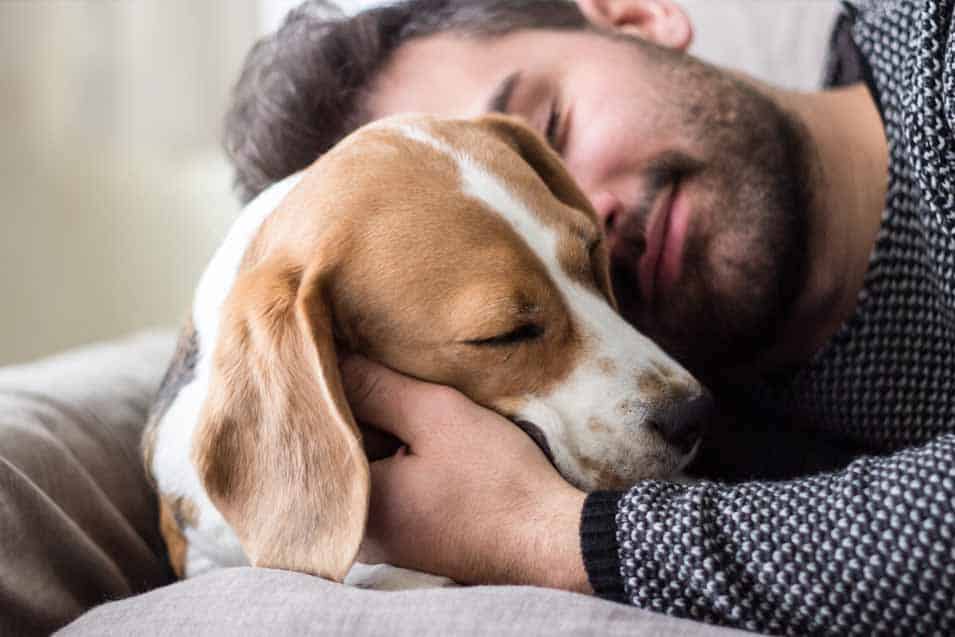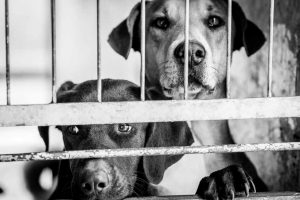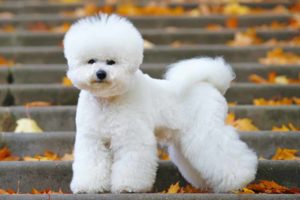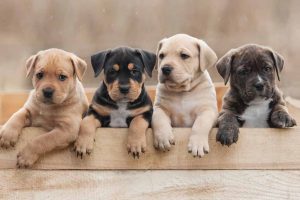There is a reason dogs are referred to as man’s best friend. Loyal almost to a fault, your best canine pal will stick with you through thick and thin; his loyalty never shaken regardless of what may be going on in the world around you. It seems an unlikely pairing: today’s modern man and the domesticated dog. Yet, together they form an impenetrable bond. Still, many wonder what it is about pooches that makes them stick so closely by their person’s side. Why are dogs so loyal?
Their Owners Control Important Resources
Though not the most popular or flattering possibility is the reality that the people in a dog’s life provide him with the resources he needs to survive and to enjoy his life to the fullest. People are the key to plentiful, tasty, and nutritious food as well as a bountiful supply of clean drinking water. A dog’s owner is also the one who takes him for a daily walk, plays fetch with him, and even buys him treats and toys. When the dog is sick, it is his person who takes him to the veterinarian to receive the care and assistance he needs to become well again. When it is time for a pooch to put his head to the pillow at night, it is his person who either provides a comfortable place to lay or allows the pup to join them in their own bed for a good night’s rest.
Since dogs are highly intelligent beings, they are quickly able to determine who is in control of the things they need. Dogs are master observers and apply their paw to learning the patterns of their owners. It is not long before they have obtained a complete understanding of the necessary cues they must elicit to yield their desired response. Part of this includes expressions of loyalty and affection towards the person who is in control of the most valuable resources. Still, things aren’t quite as cold as they may seem. Dogs do naturally form a bond with the person who provides their care. Much like children who swiftly learn how to manipulate the parents they love to their best advantage, dogs also cherish their owners while still wanting to maximize opportunities to gain access to the things that they want most.
They Share a Common History with Their Owners
The truth is since time immemorial, dogs and people have been spending lots of quality time together. Scientists assert that the first link in the dog’s evolution to today’s beloved family companion was when early wolves began to share their lives and homes with human beings over 135,000 years ago.
Recently, archaeological digs have uncovered canine bones in the same location as human remains. Though these bones have been estimated as only 13,000 years old, it is compelling evidence in support of the wild dog’s relationship to human beings. It is believed that man played an integral part in the domestication process through which a wolf evolved into a primitive species of the modern dog. A vital link in this chain was the wild dog learning to trust and depend on his human. But the relationship was not so one-sided. Dogs also played a vital role in assisting their humans with many survival tasks including the protection of the home and the sourcing of food.
Yet, affection has always existed between man and his dog. Humans easily become attached to their canine companions, and so too do their dogs become emotionally connected to them. Dogs are extremely attuned to human emotions and respond to them accordingly.
Though dogs do not speak in words, their body language is a reliable and effective means of communication. Over time, man has learned to understand his dog’s needs simply by learning what his body language expresses. Simple cues such as the cocking of a head, the set of a brow, or the positioning of a tail speaks volumes to a thoughtful owner who has taken the time to truly understand his dog. This deep bond is yet another reason dogs remain loyal to their people. This rich connection unites the dog with his person in a relationship so meaningful that words are too limited to adequately describe it.
Their Instinctually Wired to Express Loyalty
Since dogs are pack animals, they like to travel in groups. In most homes, dogs are the only companion animal or are one of two. Since loyalty is a characteristic that comes naturally to them, they extend this bond to the people in their home and actively form deep connections to them.
Dogs are inherently quite social and crave the company of other living beings. Yet this need is far more than simply a desire to interact with people or other animals. Remaining a vital part of a pack was a survival instinct the wild dog needed to remain alive in a harsh environment. He would accept and cultivate his role within a pack and would fulfill his given responsibilities to maintain his given and expected status. This pack mentality requires a willingness to be dependent upon other pack members for the survival of the group. This, of course, is coupled with the wild dog’s responsibility to prove himself valuable, trustworthy, and committed to the survival of the pack as a whole.
It is believed that this comprehensive pack unity transfers to life within a family and creates deep bonds of loyalty between the modern dog and his people. Though it cannot be affirmed, many experts assert that dogs consider their human family members to be a part of their established pack. There is no question that dogs enjoy spending quality time curled up next to the one they love. However, at the same time, remaining close to their pack members was a vital survival strategy for dogs in the wild, an instinct that our canine companions continue to express today. This is one possible explanation as to why many dogs will voluntarily accept and follow the leadership of one or more human members within a household. Dogs in a pack exist in a form of hierarchy, and a critical component of survival is a dog understanding what his role is and taking care not to overstep his boundaries. So too does the dog assess his family home with an eye to comprehending what his rank is and who the pack leader is, so he knows what is expected of him both to thrive and survive. In this way, the dog and his owner become a team, dedicated to each other’s survival and success; each loyal to their very core.
Why Are Dogs So Loyal?
There are a number of possible explanations, but since our dogs can’t talk to us, we may never know exactly why. Though it may be that they are trying to gain our favor for better access to resources, it is equally as plausible that they view us as the leader of their pack, or our shared history makes them genuinely affectionate towards us. Either way, the bond between a man and his dog is a very special thing indeed!






